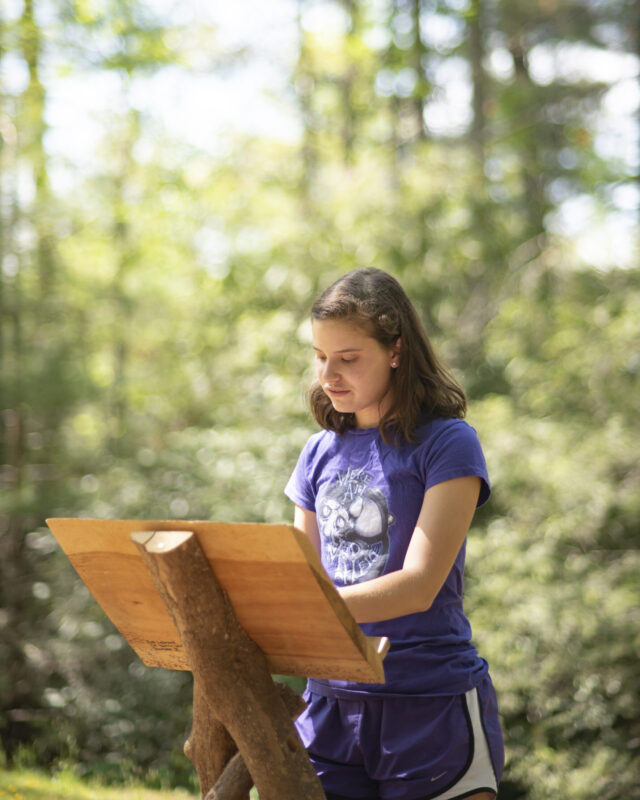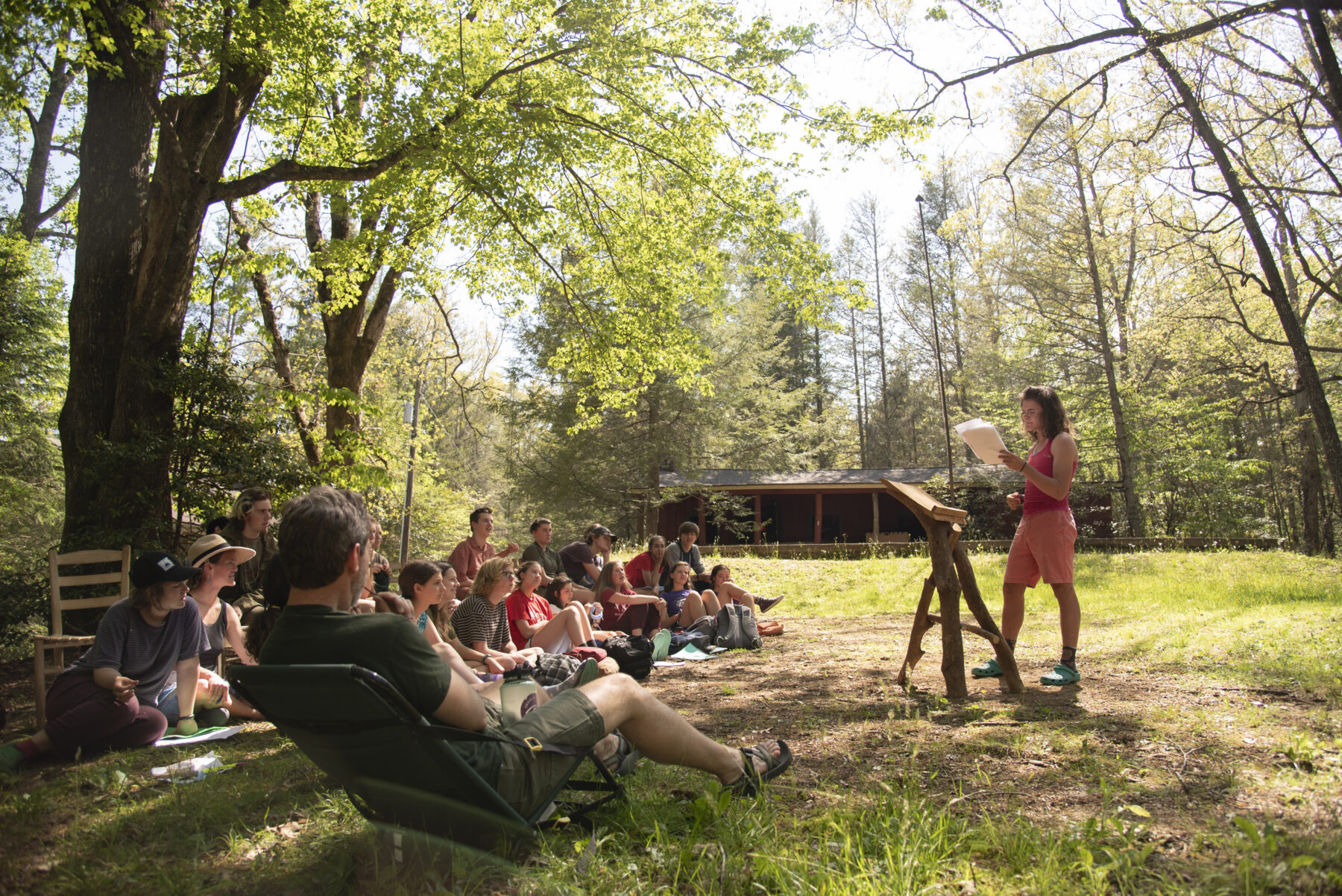By Mia Prausnitz-Weinbaum, OA Admissions Counselor and Semester 46 Alum
A common misconception among my aunts and uncles is that OA was summer camp. When I reminded them at our Rosh Hashanah gathering that I did indeed have classes and homework and the whole school thing, they almost seemed not to believe me. I was an OA student in 2018, Semester 46. Now, I’m back on Hart Road as the OA Admissions Counselor. During my first few weeks back, I’ve been reflecting on the ways OA has been a throughline of my past seven years, and I’ve found that I can break down its impacts on my life by looking at each of the four cornerstones: Craft, Environment, Community, and today’s focus, Intellect.
The “academy” part of the Outdoor Academy was an extraordinarily impactful part of my four months in Pisgah Forest. The common line alumni say is that OA renews your excitement about learning. This was 100% true for me. My schooling in Atlanta was going fine, but by sophomore fall, I was experiencing intense burnout. Every page of homework felt pointless and stupid. Why was school just a never ending stream of busywork and test prep?
It certainly didn’t help that I felt like few of my teachers had any stake in my success. It was clear I needed a change. (By the way, thank you, public school teachers, for all you do. This was just my teenage perspective.)
The next semester I was at OA. All of a sudden, my largest class had shrunk from 27 to 12, and my Spanish class only had two people. My teachers were working together to make sure we were never overwhelmed by the pileup of assignments. But at the same time, I was getting lower grades than I ever had before. At home, I got straight A-pluses, but on my midterm report card at OA, I had A-minuses and even a B in Environmental Science! Suddenly, I wasn’t so sure about this whole experiential education thing. But after conversations with my teachers I realized that at OA, it’s not about getting all the right multiple-choice answers, it’s about bringing meaningful contributions to class discussions and showing creative ways of thinking about the assigned readings. OA was pushing me out of my well-established academic comfort zone. By the end of semester, I got straight A’s, but it was still the lowest grades I got in all of high school (it didn’t stop me from finishing in the top 5% of my class and getting accepted to Brown University, though!)
I returned from OA finally feeling what it meant to put my all into my education. The next two years of high school felt different, because even though I still had to do the same busywork, I had my eyes open for places where I could dive deeper into a topic that intrigued me or put my own creative spin on a project. I had also experienced teachers who were really invested in my learning and my well-being. Their belief in me made me believe in myself.
I can safely say that my academic experience would have been drastically different and much more painful without my semester at OA. Seven years later, I still search for more adult role models like the ones I found at OA, and explore my interests whether or not they are part of an assignment. In the end, that kind of lifelong learning is what the Intellect cornerstone is all about.

